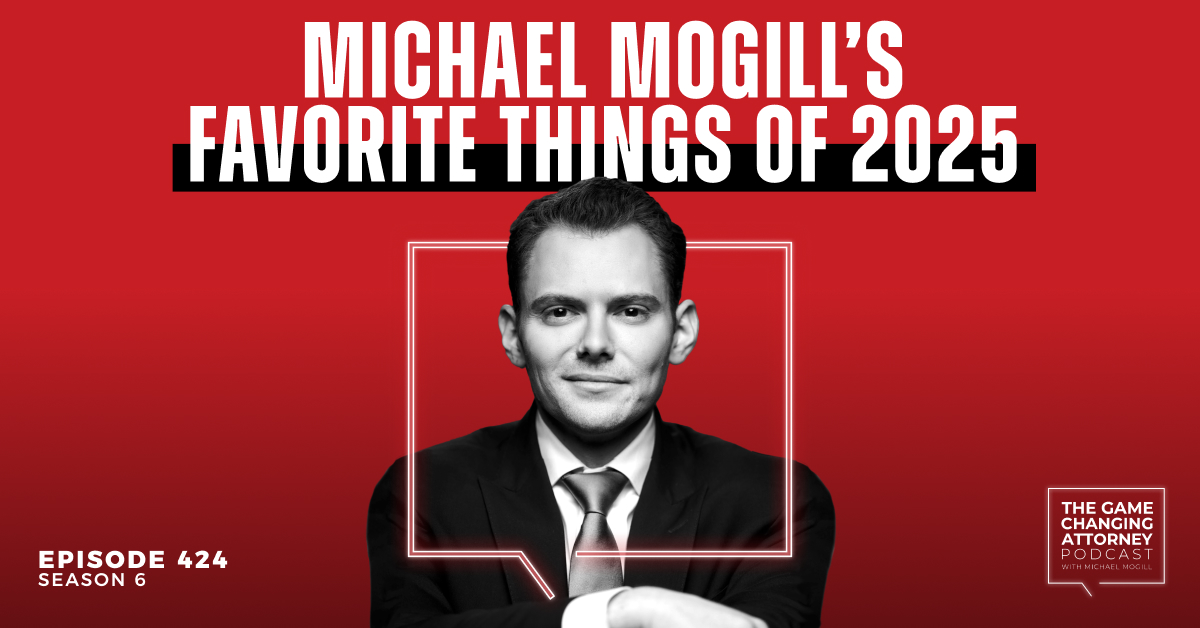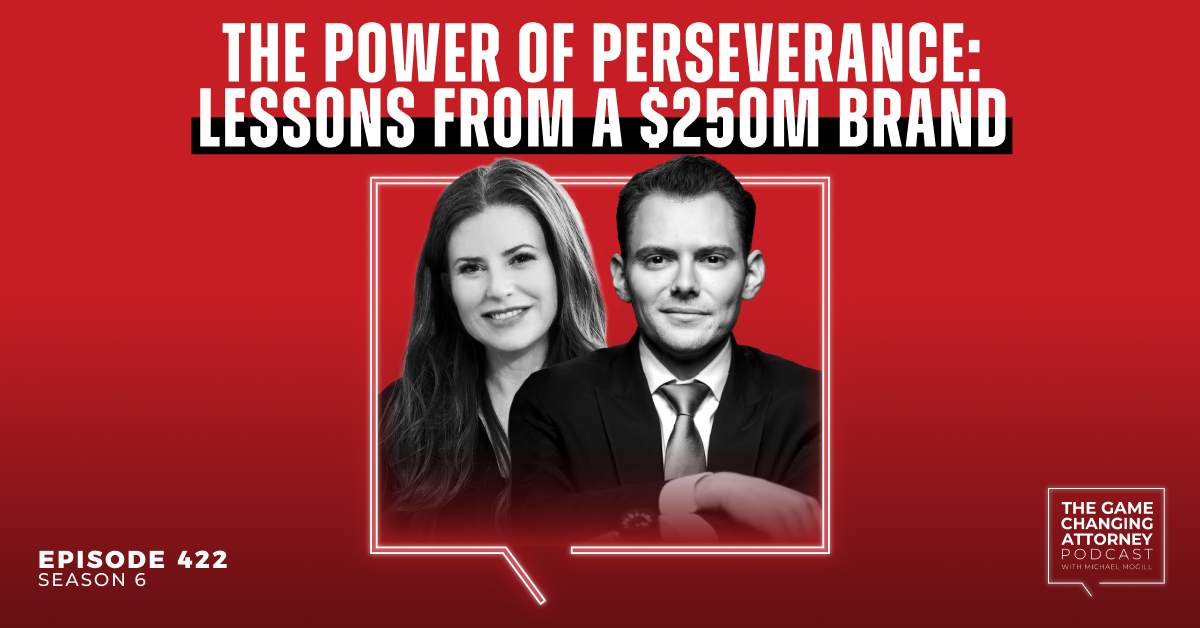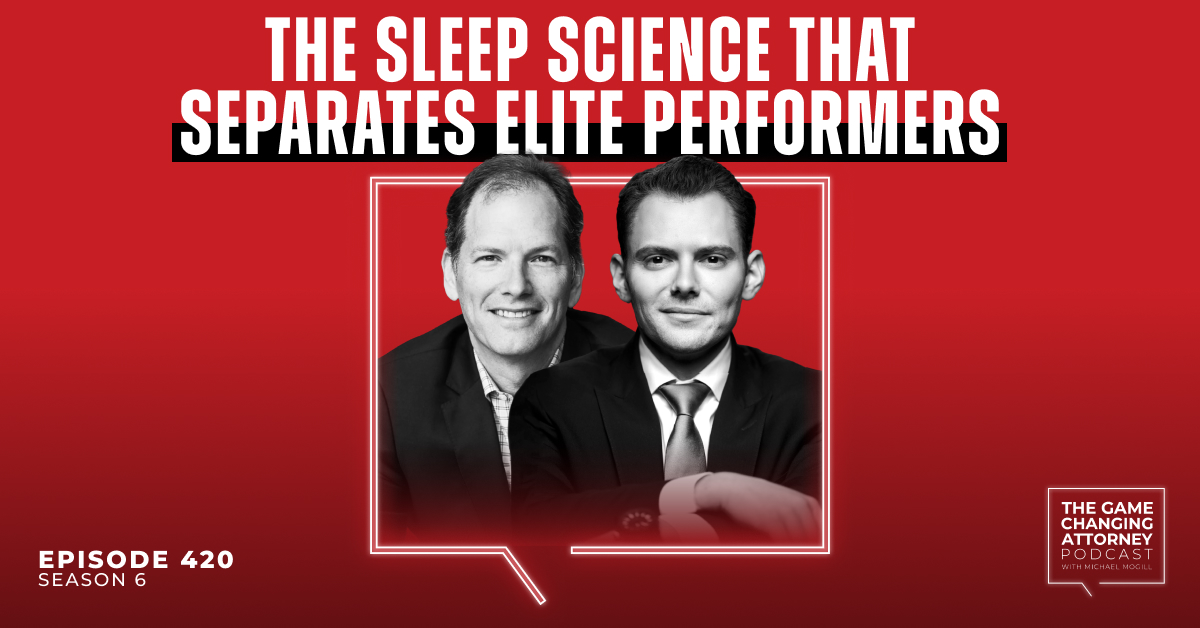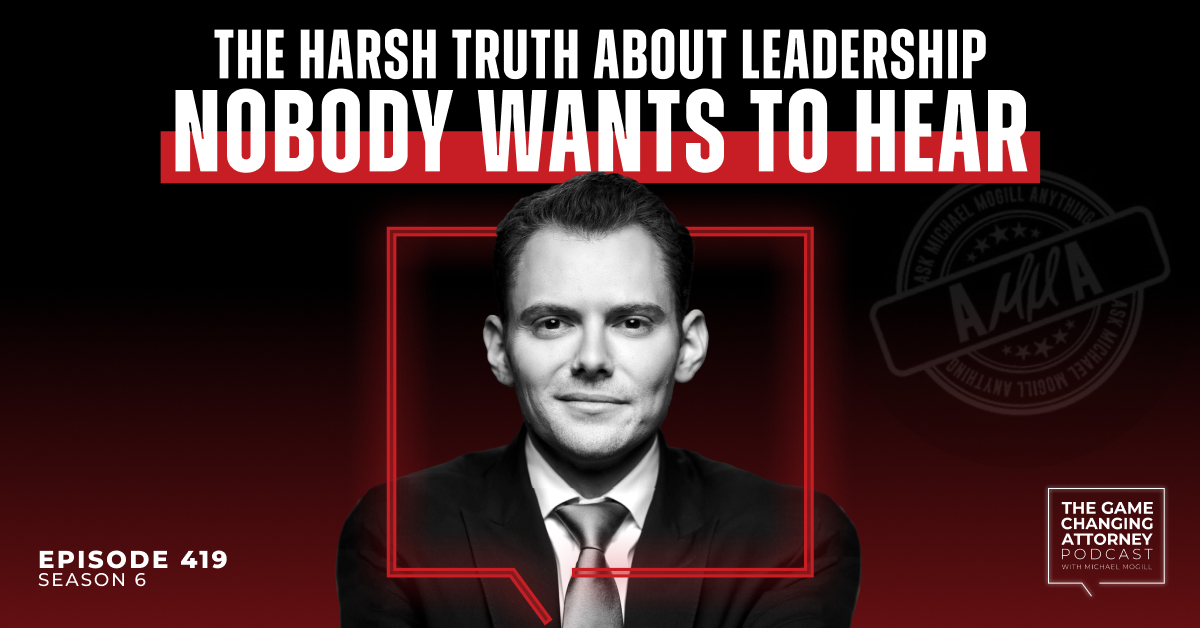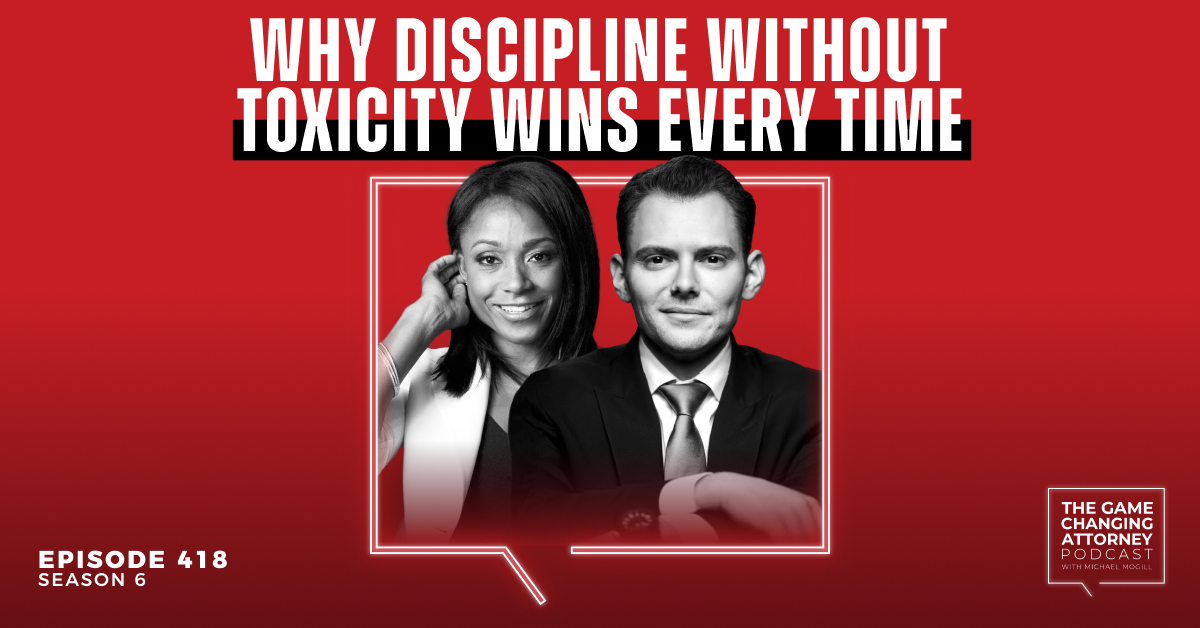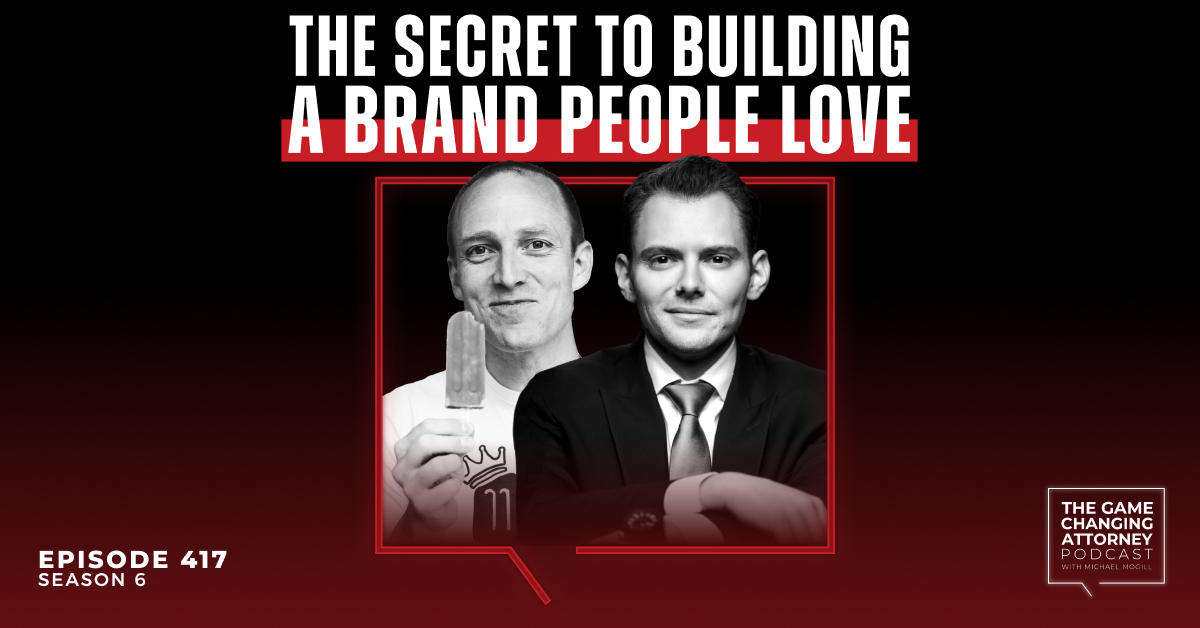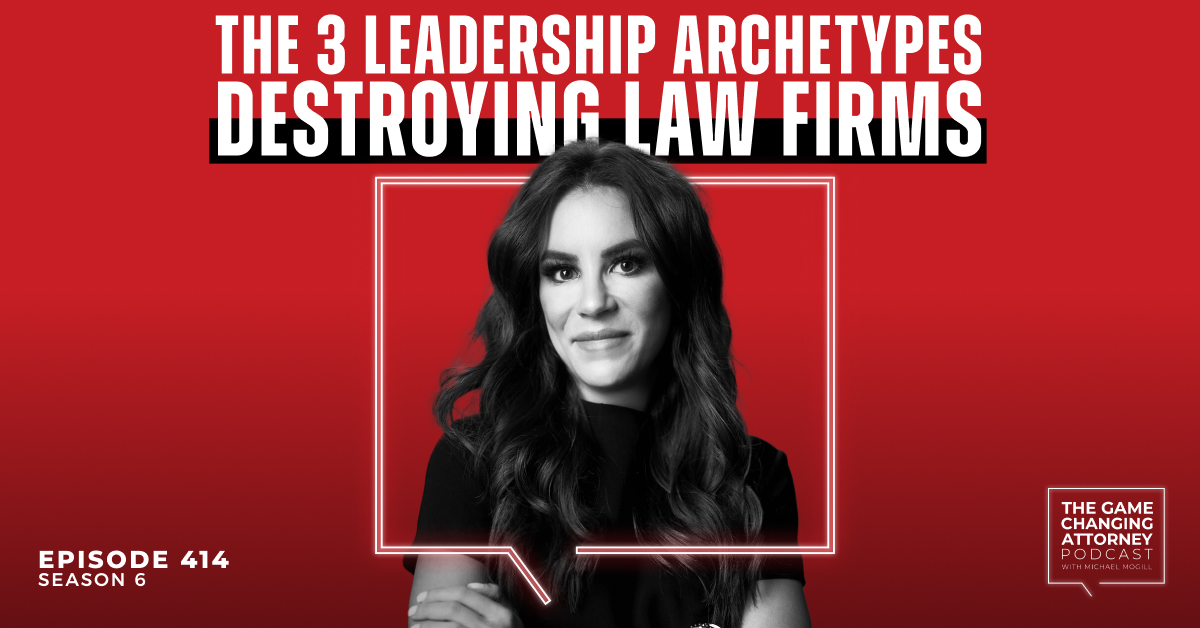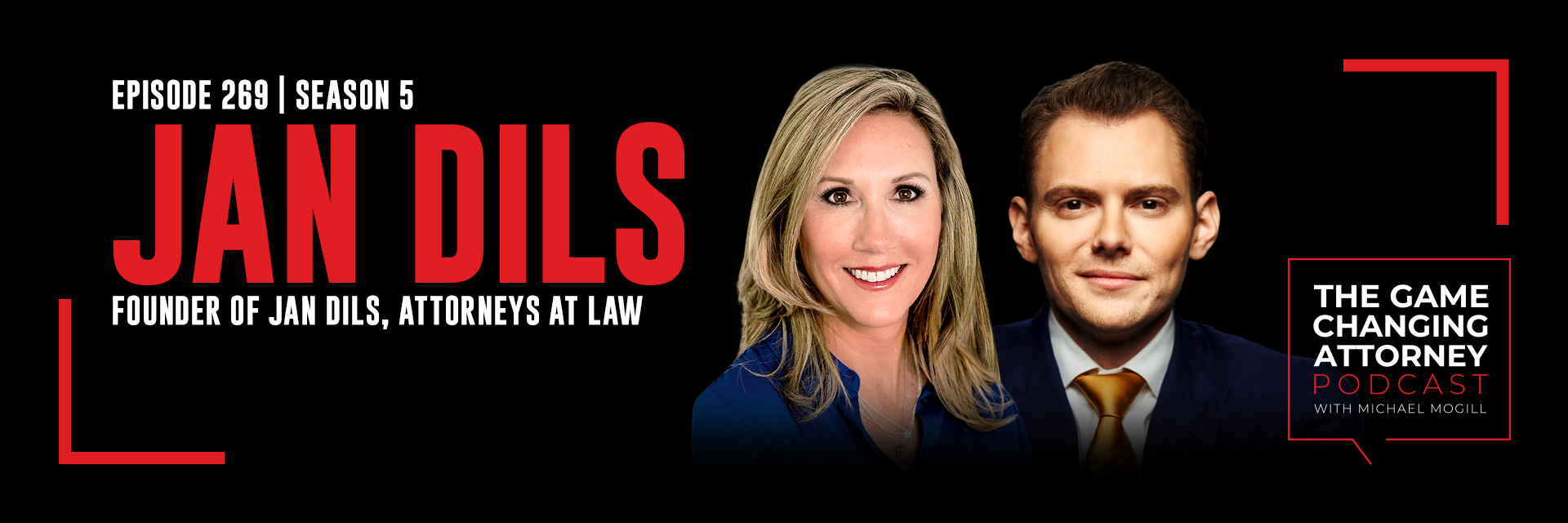
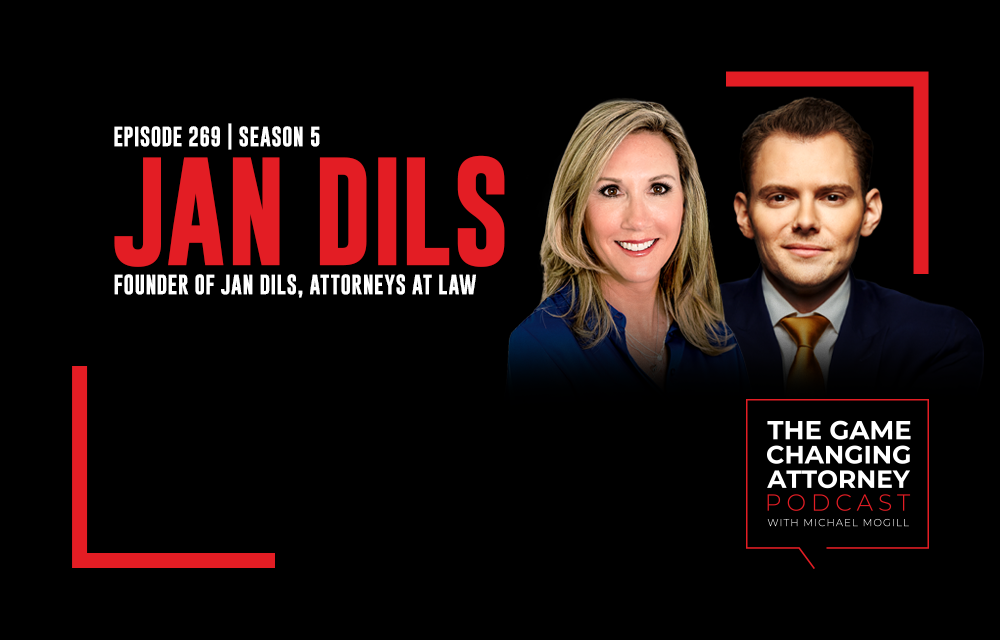
Episode 269 — Jan Dils — Leading the Largest Female-Founded Law Firm in America
Imagine a world without women.
Unthinkable, right?
Women are the driving force, the backbone, the unsung heroes in every sphere of life. They conquer late nights and early mornings, fighting relentlessly for the respect they deserve — and leading this charge is Jan Dils.
As the powerhouse behind the largest female-founded law firm in America, Jan is not just changing lives; she’s reshaping the very fabric of our society with unyielding determination and resilience.
In this must-listen episode of The Game Changing Attorney Podcast, Jan and Michael Mogill tackle:
- Transforming criticism into unstoppable growth
- The myth of work-life balance
- Amplifying your impact to create an enduring legacy
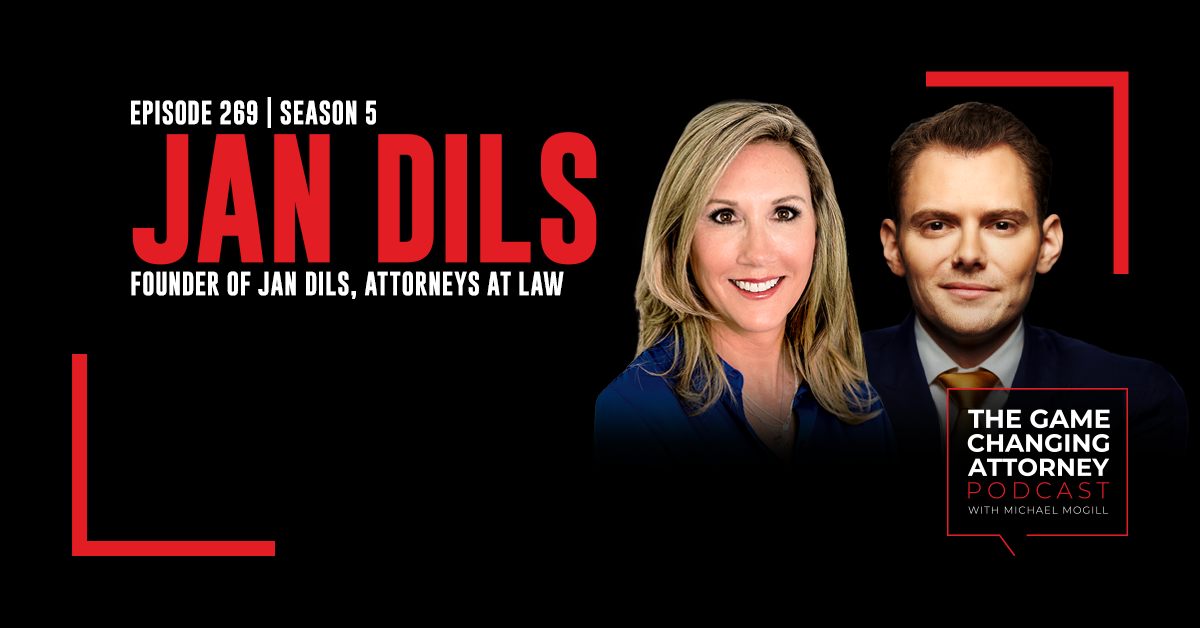
Listen & Subscribe
Show Notes:
Family business trailblazer. “I grew up working in my family’s Ford car business. When I was in high school, I’d work during the summers in reception and other roles like that, but as I got older I wanted a more in-depth role. Eventually, I became the first female salesman that my dad hired. I did that over the summer while I was in college and earned some money to buy computers, books, and other school supplies like that for my classes.”
From uninterested to inspired. “When I decided to take the LSAT and go to law school, I felt like everything was falling into place — until I actually got to law school. Once I got there, we talked about many subjects I wasn’t interested in, such as property and contracts. Any lawyer knows that the first year and a half of law school is like that. Once I got to concentrate more in the business and corporate fields of law, I felt more at home at that point.”
Advertising awakening. “My dad was big on advertising his car dealership, so I saw the value in doing it. I was familiar with the traditional advertisers, such as the television, newspapers, and radio. I purchased the backside of the phonebook back in ‘94, and after that, I cut my first commercial. That’s when I truly realized the true power of advertising.”
Don’t take “no” for an answer. “My goal with my marketing efforts was that if someone thought about Social Security, they thought about me. After airing a jingle for my company, we started getting traction and feedback in the local area of West Virginia. Then in 2002, I told a judge that I wanted to break through to Charleston, South Carolina. He told me I wouldn’t be able to do that since I was both an outsider and a woman. That’s when I knew I had no choice but to do it. I went into the Charleston market hard, wanting to own the market, and there were many competitors along the way. Shortly after, I had newspaper articles written about me and the negative look at jingles and how they reflect poorly on the legal industry. The State Supreme Court and State Legislature drafted a bill that they wanted to change lawyer advertising — with me as the poster child. At first, they tried to get me disbarred, which wasn’t successful. They ultimately wanted to change the rules because of my jingle, and it backfired on them because I was on the cover of the Charleston Gazette almost every week instead.”
The work-life balance myth. “Before I learned how to scale my business, I was the business. I didn’t have any other attorneys in the beginning. I had a couple of employees, I was going to court, and I was ultimately running the business on my own. It was a crazy time. I had my first son in ‘97 and my second one in ‘03. I would get up at 2:00 in the morning, and from 2:00-4:00, I would start preparing for my hearings because I’d have anywhere from four to six in a day. I would work out at 4:00, then get on the road by 6:00. I would have my hearings, see new clients, and then head home around 6:00 in the evening. I would hopefully see my kids and put them to bed, then I’d do it all again.”
Significant setbacks. “In 2008, I hit a roadblock. I was diagnosed with breast cancer. It definitely woke me up, and while I wish it hadn’t happened and I hadn’t had to deal with the stress and fear and treatment, it was a good thing. I realized that my kids needed to know who I was. While I was there for them and their activities, working a 60- to 80-hour workweek wasn’t sustainable. I needed to scale the business and grow as a leader.”
Challenging cultural norms. “I don’t know why women are different from men. I guess it’s because of our culture, and we’re expected to be the ones who can do it all, whereas no one really asks men to do that. I’m hoping that changes over time, but it has certainly affected me over the years. There have been many moments where I’ve thought I was a failure with work and home. There will be guilt, but you’ve got to remind yourself that you are good enough. Women in particular should forgive themselves and not expect to be superheroes.”
The Better Human Goal. “We do weekly one-on-ones with our team members, and while we discuss typical work matters, there’s one question that is always asked: ‘What did you do to become a better human this week?’ The answer could be listening to a podcast, volunteering in the community, encouraging their team or families, and just generally doing things to become better.”
What does being a game changer mean to you? “Being a game changer means being in the top 0.1 percent of people. It’s a lot of things wrapped up into one, but it’s more than growth. You must be able to scale it, have quality representation, and produce a great firm with core values and a solid culture to improve your team members’ lives and your clients’ lives.”
RESOURCES & REFERENCES
Jan Dils, Attorneys at Law
Crisp
West Virginia
Jingle
Charleston Gazette
LSAT
Connect with Michael
- Text directly at 404-531-7691
